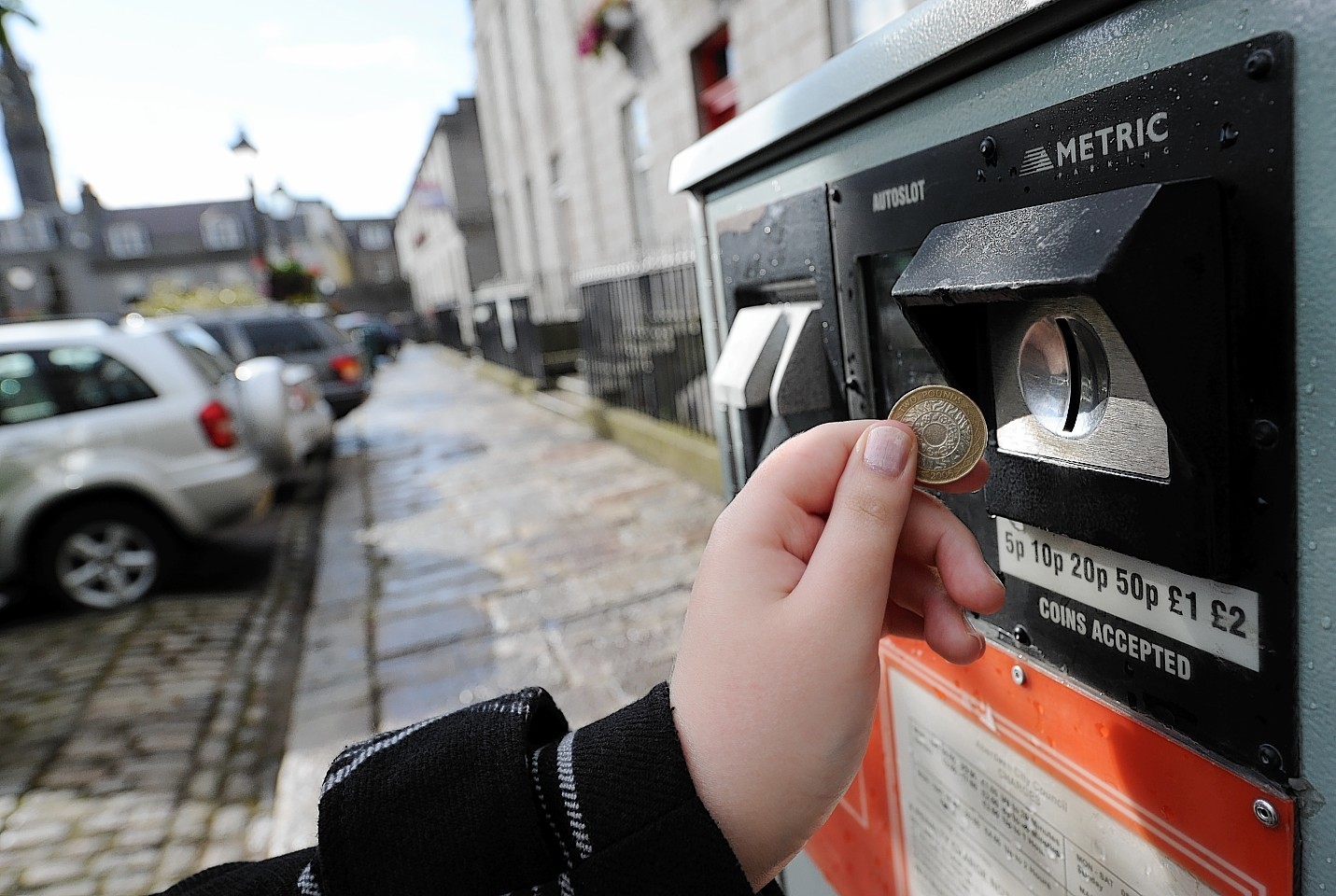Aberdeen council bosses are to unveil a £1.3 million “revolution” in payment for parking in the city, the P&J can reveal.
Nearly 70% of the city’s meters have been assessed as “aging” with some parts no longer manufactured.
Now council chiefs are taking inspiration from England and the Netherlands and will increase the use of contactless and app payments in the future.
A business case has now been prepared which could result in the phasing-out of traditional ticket machines and an increased focus upon using number plate recognition systems, “virtual parking permits” and new digitised machines across the city.
Amid ever shrinking budgets, the local authority also believes the change will lead to a significant reduction in costs.
While the cost of installing the new meters and number plate systems in the city has been estimated at £1.3 million, a reduction in maintenance of the machines could save millions.
Importantly for the council, the changes will also ensure the council continues to collect yearly fines of about £7 million – income the authority budgets for.
Documents see by the P&J reveal that around £2.2 million was collected in fines in the city centre – the area with the oldest machines.
They read: “Replacing existing machines in the city centre would deliver a better experience for customers while providing organisations with a more reliable machine network, reducing the risk of lost parking revenue and the cost of keeping ageing units in service.
“Automatic Number Plate Recognition (ANPR) currently used in our Bus Lane Cameras has moved into mobile solutions such as bicycles, mopeds and cars.
“This technology can scan the license plate of vehicles as they pass and can live-link to other digital parking services such as cashless parking and parking back office systems.
“When used for parking purposes, this technology allows the system to instantly check to see if the vehicle parked has a valid parking concession, whether it is cashless parking or a permit.
“This information can then be used to provide live data back to parking services which can then deploy officers on a more proactive basis and plan patrols more efficiently, based on previous data.
“Investing in new technology transformation ensures that the parking service assets are future-proofed, as far as possible, to protect the budgeted £7.66 million income from the parking service.”
The document notes that the changes would result in the existing 613 Pay and Display machines across the city being removed over two to three years.
The authority will then invest in 150 digital connect machines, with advertising technology, which will be installed exclusively within the city centre.
A senior council source said if the plan was progressed it would mean a “revolution” for city parking.
The Dutch city of the Hague has been identified as a prime example for the use of such a system and council officers have visited to investigate its use.
